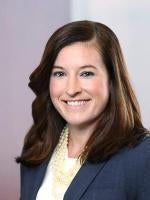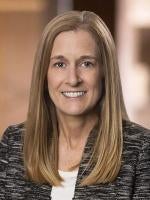New legislation enacted last month will change the way many laboratories do business in Pennsylvania. Senate Bill 1042 (SB 1042), which amends Pennsylvania’s Clinical Laboratory Act (the Act), now prohibits several practices that are common across the clinical laboratory industry, including placement of laboratory employees in physician offices. Because SB 1042 applies to all laboratories, regardless of where they are headquartered, its potential impact is far-reaching and likely will cause laboratories to reevaluate their business models and practices in the Commonwealth.
SB 1042 makes clear that it is unlawful for a “person or clinical laboratory” to pay or receive a commission, bonus, kickback, or rebate or to engage in a split-fee arrangement in any form with a health care provider or health care practitioner (both of which are defined terms), either directly or indirectly, for patients or their specimens referred to any clinical laboratory operating in Pennsylvania or testing a specimen collected or accepted within Pennsylvania. In addition, the following business practices are specifically prohibited (regardless of where the person or clinical laboratory is located):
-
leasing or renting space, shelves, or equipment or other services within a health care provider’s or practitioner’s office for any reason, including operation of a collection station;
-
providing, directly or indirectly, through employees, contractors, independent staffing companies, lease agreements, or otherwise, personnel to perform functions or duties in a health care provider’s or practitioner’s office for any purpose regardless of whether fair market value is offered or given, including for the collection or handling of specimens, unless the clinical laboratory and the health care provider’s or practitioner’s office are wholly owned and operated by the same entity; and
-
placing in a health care provider’s or practitioner’s office paid or unpaid personnel to perform services, including but not limited to specimen collection (which is defined by SB 1042), specimen processing, packaging or handling services, or genetic counseling regardless of whether fair market value is offered or given.
In other words, a clinical laboratory cannot place personnel (such as an in-office phlebotomist or specimen processor) in a physician’s office even if the laboratory’s employee is performing services only for the clinical laboratory’s benefit, or even if the physician pays fair market value for the services. And a clinical laboratory cannot lease space or equipment from a physician’s office under any circumstances. Violators could be subject to a fine of up to $500 or to imprisonment for up to one year, which are penalties already established under the Act, and SB 1042 amends to Act to impose a civil penalty of $500 per day for any violation of DOH regulations, operation of a clinical laboratory in Pennsylvania without a license, or testing of specimens from Pennsylvania without a Pennsylvania laboratory license.
In addition, SB 1042 adds further definitions to the Act and specifically authorizes the Pennsylvania Department of Health (DOH) to investigate facts submitted in an application for laboratory licensure and to conduct inspections as necessary. It also allows for DOH to exempt out-of-state laboratories from inspection as long as the laboratory holds a certificate under the Clinical Laboratories Improvement Act of 1967 (CLIA) and is licensed by its home state, if applicable. There has long been confusion about laboratories regarding whether Pennsylvania requires laboratories doing business there to hold a Pennsylvania license. In May 2012, the DOH clarified its position on this issue in a letter posted on its website, and the instructions that accompany the out-of-state licensure application also address this issue.
The legislation is likely an effort to curb potentially abusive business practices, particularly in the more competitive clinical laboratory industry sectors. Other states, such as Florida and New York, also have specific prohibitions related to placement of laboratory personnel in physician offices and renting space from physicians. In addition, relevant agencies have interpreted California’s kickback prohibition as also placing limits on such practices.




 />i
/>i